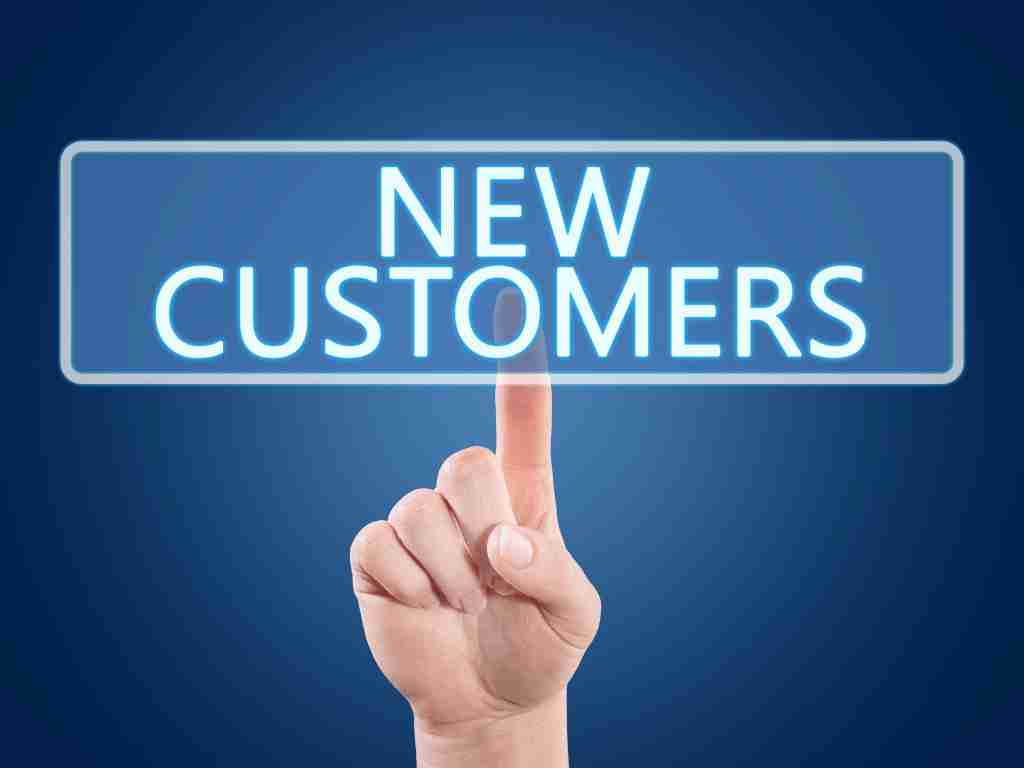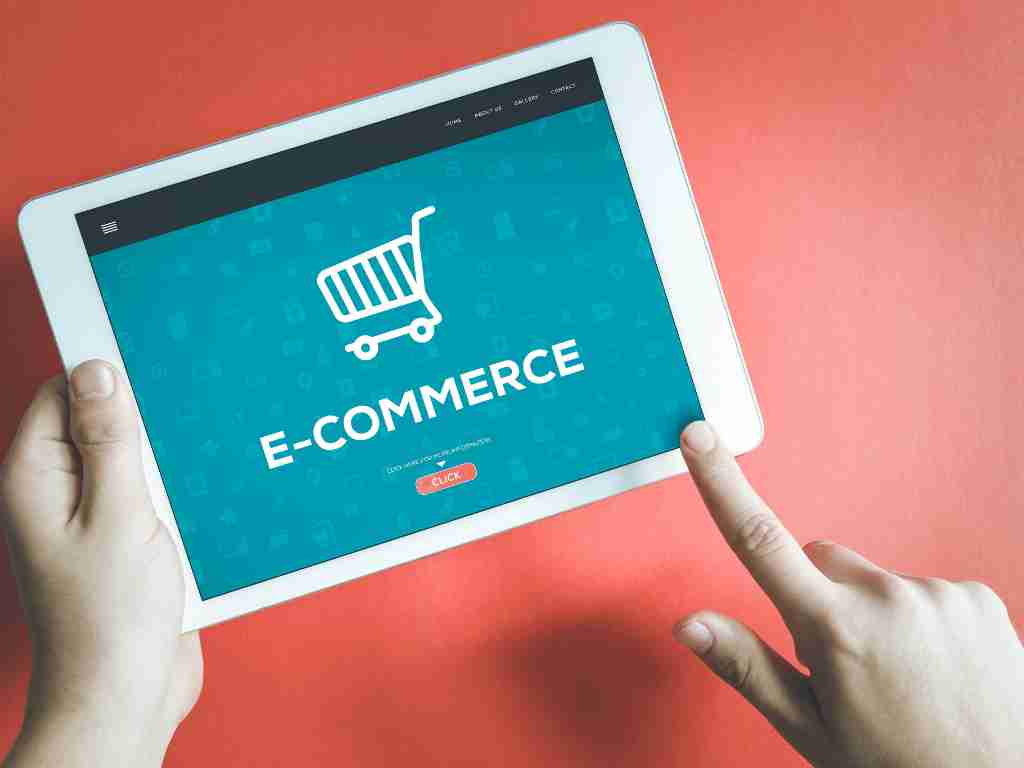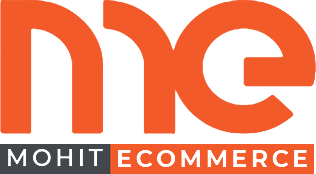- What is an e commerce marketplace?
- Seller Benefits of using an ecommerce marketplace
- Best Examples of Ecommerce Applications For Sellers
- What is Ecommerce Marketplace Model?
- Ecommerce Marketplace Types
- List of Ecommerce Marketplace in India For Sellers
- Best E commerce Advertising Examples
- How is an Ecommerce Marketplace Platform productive for Sellers?
- What is the Difference Between Marketplace vs Ecommerce?
- FAQ
Ecommerce has been growing at a rapid pace in India, and is estimated to be worth $100 billion in coming years. The scope of the e commerce marketplace in India is vast, and includes both online and offline sales.
The online market is dominated by the top three ecommerce platforms including Amazon, Flipkart, and Meesho, Myntra, etc. while the offline market is dominated by small traders.
What is an e commerce marketplace?

Ecommerce marketplaces are websites where businesses can list their products and services for sale to consumers. These marketplaces allow businesses to sell their products to a large audience quickly and easily.
They also provide tools and resources necessary for businesses to sell their products, such as customer support, shipping information, and marketing materials.
There are a number of ecommerce marketplaces in India, each with its own unique features and advantages. Some of the most popular Indian ecommerce marketplaces include Flipkart, Amazon, and eBay.
Each offers a wide range of products and services, making it easy for businesses to find the right marketplace for their needs.
If you’re looking to start selling your products online in India, a good place to start is by checking out one of the country’s many ecommerce marketplaces. They’re sure to provide you with the tools and resources you need to succeed in this competitive market.
Ecommerce marketplaces can be profitable for businesses of all sizes. The key to profitability is to create a platform that is both useful and attractive to buyers.
Marketplaces can offer sellers a large audience of potential customers, as well as tools and resources to help them sell their products.
Marketplaces also benefit businesses by reducing the time it takes to sell products. Sellers can enter information about their products into the marketplace, and then have the marketplace do all the ecommerce marketing work for them.
This allows businesses to focus on other aspects of their business, such as developing their brand or expanding their customer base.
There are many different ecommerce marketplaces available, so it is important to choose one that fits your business goals and meets the needs of your buyers.
Research different marketplaces before joining one, so you know exactly what you are getting into. Then set up your marketplace account, add your products, and start selling!
Retailers are always looking for new and innovative ways to stay competitive in the marketplace.
One way to do this is by expanding their ecommerce presence. By using a reputable ecommerce marketplace, retailers can reach a larger audience and increase sales.
There are many benefits to using a marketplace, including increased traffic and conversion rates. Additionally, marketplaces make it easy for retailers to find and purchase products from other businesses.
By using a reputable ecommerce marketplace, retailers can tap into a vast pool of products and services that they may not have been able to find on their own.
Seller Benefits of using an ecommerce marketplace
1. Reach new customers with ecommerce brands

Ecommerce brands have been able to reach new customers by using marketplaces. These marketplaces offer a place for customers to find and buy products from different ecommerce brands. By using these platforms, ecommerce brands can tap into a wider audience and increase their chances of success.
Additionally, marketplaces make it easy for customers to find and purchase the products they want. This increases the chances of conversion, which is important for online retailers.
Marketplaces allow retailers to find products that they may not be able to find on their own. By using a marketplace, retailers can search for specific items or brands. This makes it easier for them to find the right product and increase their chances of success.
Additionally, marketplaces promote small businesses by featuring their products on the platform. This increases traffic and leads to increased sales.
Ecommerce marketplaces have many benefits for both sellers and buyers. By using a reputable platform, sellers can reach new customers and increase sales.
Buyers can also access a vast pool of products and services that they may not have been able to find on their own.
2. Expand into new markets with offers

In order to stay competitive in the ecommerce market, many companies are expanding into new markets with offers. Companies are looking for ways to increase their profits and reach new customers, so this is a common practice.
Offers can be used to attract new customers, as well as current customers. They can also be used to change the way people shop and make buying decisions.
By using offers, companies can increase their revenue and reach a wider audience.
Ecommerce marketplaces are a great way to find products and services that you may not have been able to find on your own. By using a reputable platform, buyers can access a vast pool of products and services that they may not have been able to find on their own. Additionally, sellers can reach new customers and increase sales.
Offers can be used to attract new customers, as well as current customers. They can also be used to change the way people shop and make buying decisions. By using offers, companies can increase their revenue and reach a wider audience.
Read Article Best business ideas franchise
3. Get found by more shoppers across the internet

Internet shoppers are always looking for the best deals. In fact, a recent study from Shop.org found that 66% of online shoppers look for deals when they’re shopping online. So if you want to get found by more shoppers, it’s important to have a marketplace presence.
There are a few ways to create and promote your marketplace presence. You can create an ecommerce store with your own products or you can partner with other sellers and offer combined discounts or free shipping on orders over $50.
You also can promote your marketplace through social media, email marketing, and search engine optimization SEO.
Creating a strong marketplace presence will help you attract more shoppers and drive more revenue through sales and fees generated from transactions.
4. Increase online visibility for your business

Online visibility is essential for any business looking to grow its market share. By increasing online presence, businesses can create an online presence that showcases their product or service, builds trust, and encourages potential customers to explore their website further.
There are a number of ways businesses can increase online visibility. A business could invest in a well-designed website that showcases all of the company’s products and services in an easily accessible format. Alternatively, a business could make use of social media platforms to build relationships with customers and promote upcoming events or sales.
A business could participate in industry-specific ecommerce marketplaces where they can reach a wider audience than they would on their own website.
By increasing online visibility, businesses can ensure they are seen as leaders in their field and positioned to capitalize on growth opportunities.
5. Build brand awareness for your products and services
Building brand awareness for your products and services can be done through online marketplaces such as Amazon, Google, and eBay.
Creating a strong profile on these marketplaces will allow customers to find you easily and make purchasing decisions based on your product offerings.
Building a presence on social media platforms such as Facebook, Twitter, and LinkedIn can also help promote your products to a larger audience.
By utilizing all of these marketing channels wisely, you can build brand awareness for your business and increase sales potential.
6. Grow sales and revenue with advertising tools
At Ecommerce MarketPlace, we know that one of the key ways to grow sales and revenue is through effective advertising.
We offer a wide range of advertising tools, including targeted banner ads, text ads, and email campaigns.
Our tools are tailored to help you reach your target audience and generate leads or sales. Whether you’re a startup looking for cost-effective marketing solutions or an established business looking to increase your reach and ROI, MarketPlace has the right tool for you.
7. Reduce marketing costs with ecommerce tools
Ecommerce tools can help reduce marketing costs by automating tasks such as email marketing, lead capture, and customer retention.
These tools can also help businesses track and analyze data to improve their marketing efforts. Contact us today to learn more about our ecommerce solutions!
8. Enhance customer loyalty by providing coupon codes
Customers are loyal to businesses that provide them with coupon codes. Providing these codes allows customers to save money on their purchases, which can enhance their loyalty to the business.
Offering this type of loyalty program can also increase sales and revenue. Contact us today to learn more about our loyalty programs!
Best Examples of Ecommerce Applications For Sellers

1. Shopify
Shopify is a popular platform for ecommerce sellers. It offers a range of features and tools that make it easy to set up and manage an online store.
Shopify also has a wide range of integrations with other platforms, so you can easily sell products online through other channels, such as Facebook, Instagram, or Amazon.
2. BigCommerce
BigCommerce is one of the most popular ecommerce platforms on the market. It offers a wide range of features, such as product pages, shipping options, and checkout processes.
With BigCommerce, you can easily create an online store that can be used by both small businesses and large corporations.
In addition to its widespread popularity, BigCommerce is also free to use for up to 100 products.
3. WooCommerce
WooCommerce is a popular ecommerce platform that enables users to create and manage their own online stores. It offers a wide range of features that can help sellers run their businesses more efficiently.
Some of WooCommerce’s most notable features include: a built-in shopping cart, automatic order processing, product variations, custom shipping options, and more.
Additionally, WooCommerce offers developers the ability to create custom extensions and plugins that can further enhance its functionality. This makes it an ideal platform for companies of all sizes and industries.
4. Magento
Magento is a popular ecommerce platform that can be used by both small and large businesses. It is extremely versatile, allowing businesses of all sizes to create an online store that meets their specific needs. Magento is also very user-friendly, making it easy for sellers to get up and running quickly.
In addition, Magento offers a wide range of features that can help sellers grow their business. For example, Magento provides advanced shopping cart functionality and marketing tools that can help sellers drive more traffic to their stores.
Magento is a powerful ecommerce platform that can be used by both small and large businesses alike.
If you are looking for an ecommerce platform that can meet your specific needs, then Magento should definitely be on your list of options.
5. Volusion
Volusion is a popular ecommerce platform that allows sellers to create and manage their own online stores.
With Volusion, sellers can choose from a variety of tools and features to help them grow their businesses.
Some of the most notable features include an easy-to-use Shopify integration, built-in marketing tools, and a wide range of payment options. As a result, Volusion is perfect for those who want to create their own store from scratch or upgrade an existing store.
6. 3dcart
There is no doubt that 3dcart is one of the most popular ecommerce marketplaces. It has a large user base and offers a variety of features that can be helpful for sellers. Some of the most important features include product descriptions, product images, and shopping carts.
One reason why 3dcart may be so popular with sellers is that it allows them to sell products from different countries.
This can be helpful for sellers who want to reach a wider audience. Additionally, 3dcart offers a wide range of features that can help sellers improve their business. For example, it allows sellers to create shipping labels and track orders in real time.
Overall, 3dcart is an excellent choice for ecommerce sellers who want to improve their business. It offers a wide range of features that can help you grow your ecommerce business and attract more customers.
7. OpenCart
When it comes to ecommerce, there are a number of different platforms that sellers can use. Among the most popular options are Shopify and Magento. However, OpenCart is becoming increasingly popular as an option for small businesses and entrepreneurs.
OpenCart is a free, open source ecommerce platform that makes it easy for merchants to create and manage their own websites.
It offers users a wide range of features, including built-in inventory management, shipping capabilities, and automated order processing. In addition, OpenCart makes it simple to add customizations and modifications to existing templates or create completely new ones.
Therefore, if you are looking for an easy-to-use ecommerce platform that can be customized to fit your specific needs, OpenCart should definitely be on your radar.
What is Ecommerce Marketplace Model?

Ecommerce marketplace model refers to an online platform that allows sellers to sell products and services to buyers.
The marketplace operator acts as a middleman between the two parties, providing a space and tools for buyers to find and buy products, as well as a platform for sellers to list their products and services.
With a wider range of products and services available, ecommerce marketplaces offer users greater choice and variety than traditional online stores.
Marketplace operators typically charge lower commissions than those charged by individual sellers, which can lead to significant cost savings for buyers.
By acting as a trusted third party, ecommerce marketplaces provide users with security and confidence when making purchases.
The Ecommerce Marketplace Model is different for sellers and buyers.
An ecommerce marketplace is an online market where sellers can sell products to buyers. The key benefit of an ecommerce marketplace is that buyers can find and purchase products from a wide range of sellers, all in one place.
This makes it easier for buyers to find the perfect product and save time shopping.
Ecommerce marketplaces also offer sellers access to a large pool of potential buyers, which can help them reach more customers. By participating in an ecommerce marketplace, sellers can gain exposure to their products and increase sales.
There are a number of different types of ecommerce marketplaces available today, so it’s important for sellers to choose the right one for their product and business. Choosing the right ecommerce marketplace can help you reach more customers and grow your business.
Ecommerce Marketplace Business Model includes
- Sell products to customers through an online store.
- Use an ecommerce platform to manage orders and inventory.
- Use affiliate marketing to generate revenue from sales generated by other merchants on the ecommerce platform.
- Use pay-per-click (PPC) advertising to drive traffic to your store.
- Use social media platforms to promote your store and connect with customers.
- Use lead capture forms to capture contact information from customers who are interested in your products.
- Use email marketing to send periodic announcements and updates about your store.
- Use customer reviews and ratings to improve customer interactions and sales.
Ecommerce Marketplace Types
1. Direct-to-consumer (DTC) ecommerce marketplaces allow consumers to buy products directly from the retailer, without any intermediaries.
2. Third-party ecommerce marketplaces allow merchants to sell products through an online store owned by a third party.
3. Hybrid ecommerce marketplaces combine elements of DTC and third-party ecommerce models, allowing merchants to sell products through both their own online store and third-party stores operated by the marketplace operator.
4. Ecommerce marketplaces for physical goods allow sellers to list physical products for sale on the marketplace, alongside digital products that can be purchased using netbanking, credit card, debit card, etc.
List of Ecommerce Marketplace in India For Sellers

1. Amazon India
Amazon India is one of the world’s largest ecommerce marketplaces with over 100 million active buyers and sellers. With a wide selection of products, Amazon India makes it easy for shoppers to find what they’re looking for and make purchases.
Sellers can list their products on Amazon India and receive feedback from buyers to help them improve their products. Amazon India also offers a payment gateway that allows sellers to accept payments in over 200 currencies.
2. Snapdeal
Snapdeal is an online marketplace that enables buyers and sellers to connect and transact business.
Snapdeal has a large user base, making it a popular option for buyers and sellers. Sellers can find products from various categories, while buyers can find products from a variety of brands.
The site offers a wide variety of products, making it an ideal choice for shoppers looking for something specific. Additionally, the site offers fast shipping options and easy returns, which makes it an attractive choice for buyers as well.
3. Shopclues
Shopclues is an online marketplace that connects buyers and sellers of products and services. The company offers a variety of features to its users, including a user-friendly search engine, swift transaction processing, and a wide range of inventory options.
Shopclues also has a robust customer support system in place to help users with any issues or questions they may have.
4. Flipkart
When it comes to ecommerce, there’s no one-size-fits-all solution. For buyers, Flipkart is a popular marketpalce, with an extensive selection of products and easy navigation. For sellers, Flipkart offers a user-friendly platform and competitive prices.
Flipkart has become the go-to marketpalce for buyers in India. With over 100 million registered users and over 10 million daily active users, Flipkart has everything a buyer needs to find and purchase the perfect product.
Sellers on Flipkart benefit from competitive prices and a user-friendly platform. The platform offers detailed listings and includes features such as product ratings and reviews, images, videos, specifications, buying guides, etc.
Sellers can also manage their inventory using the seller dashboard or use the FBA (Fulfillment by Amazon) feature to sell products through Amazon.
Whether you’re looking for a marketpalce to buy or sell products online, Flipkart is a great option.
5. Paytm
When it comes to shopping, there’s no doubt that India is a powerhouse. And while there are plenty of options for buyers, Paytm is undoubtedly one of the most popular ecommerce marketplaces in the country.
For sellers, Paytm offers an easy way to get started and make money from your products. Plus, there are plenty of features available to help you streamline your business and make sales.
Whether you’re looking for a platform to sell items online or just want to explore the Indian ecommerce market, Paytm is a great option.
6. Ajio
Ajio is a marketplace that connects buyers and sellers of products and services. The site offers a variety of features to make the shopping process more efficient for both buyers and sellers.
Ajio allows users to browse through a variety of products and services, compare prices, find bargains, and make purchases quickly and easily.
The site also provides users with ratings and reviews from other shoppers to help them make informed decisions about what to buy.
Ajio is an excellent choice for buyers looking for a convenient way to purchase goods and services online, and it is also popular among sellers who want to reach a large audience of potential customers.
7. Myntra
Myntra is an online ecommerce market place that connects buyers and sellers of products and services. It offers a wide range of products and services at competitive prices. Myntra allows customers to make purchases both online and offline.
The site has a user-friendly interface and provides detailed product information. Sellers can post their products for sale on Myntra, manage their inventory, receive orders, track the status of their orders, and respond to customer inquiries.
Myntra offers a range of payment options, including debit/credit cards, net banking, PayPal, and direct debit from bank accounts.
8. Jabong
Jabong.com is an ecommerce market place that connects buyers and sellers of products and services. It offers a wide variety of products and services, including clothes, home goods, digital content, and travel.
Jabong also offers a wide range of payment options, including debit cards, net banking, credit cards, and PayPal. The site is mobile-friendly and easy to use.
9. Voonik
Voonik is an online ecommerce market place that connects buyers and sellers of products and services. The site offers a wide range of products and services, making it the perfect place to find what you’re looking for.
Voonik is perfect for those who want to buy or sell products and services online. It offers a wide range of products and services, making it the perfect place to find what you’re looking for. The site is easy to use, making it a great choice for those who are new to ecommerce.
Voonik is a great choice for anyone who wants to buy or sell products and services online. It offers a wide range of products and services, making it the perfect place to find what you’re looking for. The site is easy to use, making it great for those who are new to ecommerce.
10. Koovs
When it comes to buying and selling goods, Koovs is a great marketplace to use. With Koovs, buyers can find what they’re looking for quickly and easily, while sellers can get their products in front of many potential buyers.
Additionally, Koovs offers features like product ratings and reviews that help buyers make informed decisions about what they buy.
11. Tata Cliq
Tata Cliq is an online market place for buyers and sellers in India. It provides a platform for buyers to search for products and sellers to sell their products. Tata Cliq also offers a variety of services such as product search, product comparison, and product reviews.
12. Nykaa
Nykaa is a big ecommerce market place that helps buyers and sellers connect. It offers a wide range of products, from fashion to home goods, and has a huge selection of brands. The site is easy to use and navigate, making it a great choice for shoppers looking for variety and quality.
13. Quikr
Quikr is an online market place where buyers and sellers can find and buy products from across the country. Quikr offers a wide variety of products, including groceries, clothes, cars and appliances. Quikr also has a customer support team that can help buyers and sellers with any questions they have.
Best E commerce Advertising Examples

1. Google Ads
Google Ads is a paid search engine marketing platform that allows ecommerce sellers to target consumers with relevant ads. Advertisers can select the Display Network, including Google Search, YouTube, and Google Display Network properties such as Gmail and Google Maps.
Ecommerce sellers can create ads and specify the cost per click (CPC) or cost per impression (CPM). Ads are also served on a “landing page” that is designed to capture a consumer’s attention.
2. Facebook Ads
Facebook Ads is a popular way to reach potential customers on Facebook. For ecommerce sellers, Facebook Ads can be an effective way to drive traffic to your website and sell products.
To create a successful Facebook Ad campaign, you first need to identify your target market. You can target potential customers based on age, location, interests, and more. After you have identified your target market, you can create ads that will appeal to them.
You can also use Facebook Ads to promote specific products or brands. For example, you could run ads promoting a particular type of product or brand. Or you could promote a specific event that is related to your product or brand.
Facebook Ads are an effective way to reach potential customers on Facebook. For ecommerce sellers, Facebook Ads can be an effective way to drive traffic to your website and sell products
3. Instagram Ads
Instagram Ads can be a powerful tool for ecommerce sellers looking to reach new customers.
The platform is highly visual and allows for quick and easy targeting of potential buyers. Additionally, Instagram offers a wide range of creative options that can be tailored to match the unique selling propositions of each individual business.
How is an Ecommerce Marketplace Platform productive for Sellers?

- It is a one stop shop for all your ecommerce needs
- It is easy to use and manage
- You can reach a large audience of potential customers
- It is cost effective
- You can sell internationally
- You have the potential to make a lot of money
An Ecommerce marketplace platform is an online marketplace that allows businesses to sell their products and services to customers. These platforms allow businesses to set up an easy-to-use website and sell their products directly to consumers.
Ecommerce marketplaces are typically very productive for sellers because they allow businesses to reach a large audience quickly and cheaply.
They also provide sellers with features such as customer feedback, product ratings, and shipping options.
What is the Difference Between Marketplace vs Ecommerce?
Marketplaces and ecommerce platforms are two different types of online marketplaces. Ecommerce platforms allow users to sell products and services directly to consumers.
Marketplace platforms, on the other hand, allow businesses to sell products and services to other businesses.
There are a few key differences between marketplace vs ecommerce platforms. First, ecommerce platforms allow users to build a more sophisticated product catalog than is possible on a marketplace platform. Second, ecommerce platforms typically have more features for managing orders and customer relationships.
Third, ecommerce platforms often have more extensive marketing capabilities than marketplace platforms.
Finally, ecommerce platforms can be more expensive than marketplace platforms, but they often offer greater scalability and flexibility.
FAQ
An ecommerce marketplace is an online platform that enables sellers to sell their products or services to buyers. Ecommerce marketplaces are typically used by businesses and consumers to find, compare, and buy products or services.
The best e commerce marketplace for retailers varies depending on factors such as the type and size of the retailer’s business, its geographical location, and its target market. Some popular e commerce marketplace options for retailers include Amazon, flipkart, paytm, eBay, and Alibaba.
An ecommerce marketplace is a marketplace that enables buyers and sellers to transact with each other online.
There are different ecommerce platforms which can be profitable for different reasons. Some platforms may be more suitable for certain businesses, while others may have lower fees or be more user-friendly. Ultimately, it depends on the individual business and what their goals are.
Ecommerce applications enable businesses to sell products and services online. Some popular ecommerce applications include Shopify, Magento, and WooCommerce. These applications provide businesses with a platform to create an online store, manage their inventory, and process payments.
An ecommerce marketplace model is a platform that allows multiple businesses to sell their products online. The marketplace provides a central location for businesses to list their products, and customers can browse and purchase products from multiple businesses in one transaction.
The best ecommerce marketplace India seller for your business will depend on a number of factors, including the nature of your products, your target market, and your budget. However, some popular ecommerce marketplace India sellers include Amazon, Snapdeal, and Flipkart.
It depends on the products being sold and the target audience. Some of the more popular ecommerce marketplaces in India include Flipkart, Amazon, Nykaa, and Snapdeal.
Ecommerce advertising examples include online banner ads, Google AdWords, Facebook ads, and Amazon Sponsored Products.
Ecommerce marketplace platforms are typically organized around a particular industry or niche, and they provide a variety of features and tools to make it easy for businesses to sell their products or services online.
Marketplaces are online platforms that enable different parties to buy and sell products or services. Ecommerce, on the other hand, refers to the buying and selling of goods and services online. The main difference between the two is that marketplaces provide a platform for buyers and sellers to connect, while ecommerce platforms enable businesses to sell directly to consumers.
There are many ecommerce platforms available, each with different features and functionality. When choosing an ecommerce platform, it is important to compare the various options to find the one that best meets your needs. Some common features to look for include Payment methods, Design and customization, Shipping, etc.
Some factors that could be considered when choosing a Shopify ecommerce store include the selection of products offered, the store’s reputation, customer service, ease of use, and price.
You can search in google for ecommerce marketplace warehouse near your address.
Ecommerce marketplace business model typically refers to an online platform where multiple third-party retailers can sell their products directly to consumers. Ecommerce marketplaces are similar to physical marketplaces in that they provide a central location for multiple sellers to display their products, but they differ in that they are online platforms that facilitate transactions between buyers and sellers.
E commerce platforms are designed to facilitate transactions between businesses and consumers, while marketplace platforms are designed to facilitate transactions between businesses and other businesses, or between businesses and consumers.
Ecommerce marketplace management services are a type of business service that helps companies to run their online marketplace businesses. These services can include anything from helping to set up the marketplace, to managing day-to-day operations, to providing customer support.
There are many ways to find ecommerce marketplace development services. One way is to do a search on Google or another search engine. Another way is to ask for recommendations from friends or colleagues. You can also check out online directories or review sites.
Most ecommerce websites have similar basic specifications. They are designed to allow customers to browse and purchase items online. Typically, ecommerce websites have a catalog of products, a shopping cart and checkout process, and a payment system. Some ecommerce websites also have features such as customer accounts, order tracking, and Wish Lists.
Ecommerce tax rules are the set of regulations that govern how online businesses are taxed. The most common ecommerce tax rules are related to sales tax, but there are also rules regarding income tax, VAT, and other taxes that may apply to online businesses.
The ecommerce market is the portion of the retail market that sells goods and services via electronic means, such as the internet. The global ecommerce market was worth $915 trillion in 2019 and is expected to reach $1058 trillion by 2022
Ecommerce marketplace features can include product listings, search functionality, customer reviews, seller ratings, etc.
There are many ways to find ecommerce marketplace jobs. One way is to search for them on job boards or online job search engines. Another way is to contact ecommerce marketplace companies directly and inquire about open positions. Many ecommerce marketplaces post job openings on their websites.
Starting an ecommerce business in the UK is relatively simple and straightforward. The first step is to choose a business structure and register the business with Companies House. The next step is to obtain a business bank account and obtain any necessary licenses and permits. Once these steps are complete, you can begin setting up your online store and marketing your products or services.
Yes, ecommerce is considered retail. Retail is defined as the sale of goods or services to consumers, usually in small quantities. Ecommerce is the sale of goods or services through the internet.
Ecommerce is a type of business that allows customers to purchase products or services online. Retail sales, on the other hand, are businesses that sell products or services in brick-and-mortar stores.
Ecommerce, also known as electronic commerce, is the buying and selling of goods and services over the Internet. Online retail, on the other hand, is the sale of goods and services through the Internet. The two terms are often used interchangeably, but there is a difference between the two.
Some experts say that ecommerce will overtake retail, while others believe that the physical shopping experience will always be essential. What is certain is that ecommerce is growing at a rapid pace, and it is changing the way people shop.
The ecommerce marketplace manager salaries can vary widely depending on a number of factors, including the specific company and position, the location, the size of the company, and the industry.
There are many ecommerce marketplace options in Malaysia, so it really depends on what you are looking for specifically. Some popular ones include Shopee, Lazada, and 11street.
There are a few ways to find ecommerce order fulfillment jobs. The most common way is to search for them online, on job boards or websites like Indeed or Glassdoor. You can also look for ecommerce order fulfillment jobs in your local area by searching online or in newspapers.
An ecommerce marketplace strategy is a plan for how a business will create and maintain a presence on an online marketplace. The strategy will consider the marketplace’s rules and regulations, the competition, and the target market.
Ecommerce marketplace websites are websites that enable buyers and sellers to transact with each other. These websites typically provide a platform for sellers to list their products or services, and buyers to search for and purchase these products or services.
There are many best ecommerce marketplace website builder. Different businesses have different needs, and there are a variety of ecommerce marketplace website builders to choose from. Some popular ecommerce marketplace website builders include Shopify, Wix, and BigCommerce.
Ecommerce marketplace website templates allow you to quickly and easily create a professional looking marketplace website. These templates typically come with a wide range of features and options, making it easy to set up and manage your marketplace.
Ecommerce marketplace specialists can be found by doing a search online. You can also find them by contacting ecommerce companies and asking for a referral. You can also find ecommerce marketplace specialists by attending ecommerce trade shows and conferences.
The choice of whether to use an ecommerce platform or marketplace depends on a number of factors, including the type of product or service being offered, the size and scale of the business, and the preferences of the customers. Ecommerce platforms are typically better suited for businesses that have a single, well-defined product or service to offer, while marketplaces are better suited for businesses that offer a variety of products or services.
There are many benefits to ecommerce marketplaces. They provide a convenient way for buyers to find and purchase products and services. Marketplaces also offer sellers a platform to reach a large number of potential customers. By connecting buyers and sellers, marketplaces can create efficient marketplaces that benefit both parties.
The ecommerce marketplace manager salaries can vary greatly depending on the size of the company, the specific duties of the ecommerce marketplace manager, the location of the company, etc.
The best ecommerce marketplace platform for sellers depends on the specific needs and requirements of the seller. However, some of the most popular ecommerce marketplace platforms used by sellers include Amazon, flipkart, Meesho, Myntra, etc.
The three most popular ecommerce marketplace software platforms are Magento, PrestaShop, and WooCommerce.
Some general tips that could be useful for increasing ecommerce sales include optimizing the website for search engines, offering discounts and coupons, providing customer testimonials and reviews, and creating targeted marketing campaigns.
The ecommerce sales process can vary depending on the type of business and product being sold. It typically involves creating an online store or marketplace, listing products for sale, and then processing orders and payments from customers.
Different people have different opinions on what constitutes the best ecommerce store. Some factors that could be considered include the selection of products offered, the ease of use of the website, the level of customer service provided, and the shipping options and costs. Some popular ecommerce stores in Australia include Amazon, eBay, and Target.
An ecommerce marketplace is a digital platform that allows businesses to buy and sell products and services. Ecommerce marketplaces are typically organized around a particular theme or industry, and they can be either online or offline.
There are a few ways to look for ecommerce marketplace manager jobs. One way is to use job search engines like Indeed or Monster. Another way is to use marketplaces like Upwork or Fiverr. Finally, you can also try searching on social media platforms like LinkedIn.
Ecommerce marketplace design templates are pre-made web designs created for online storefronts. They provide a cost-effective way to build an online presence, and can be customized to fit the needs of any business.
There are a few ways to download an ecommerce marketplace template. One way is to go to a website that offers templates and select the one you want. Another way is to use a search engine to find a website that has the template you want.
Ecommerce can be a great way to reach a larger audience with your product or service. It can also be a great way to cut costs and increase efficiency in your business.
An ecommerce payment gateway is a third party service provider that enables businesses to process credit card payments online. Payment gateway providers typically offer a suite of services including payment processing, fraud detection and prevention, and security features to help businesses keep customer data safe.
An ecommerce marketplace is an online platform that allows buyers and sellers to trade goods and services.
Some popular Shopify ecommerce store examples include Allbirds, Glossier, Kylie Cosmetics, etc.
Shopify is a platform that allows users to create online stores. Some examples of stores that have been created using Shopify include bonobos, everlane, kith, etc.
Sales tax laws for ecommerce are designed to ensure that online retailers collect and remit the correct amount of sales tax on each purchase. The laws vary from state to state, but generally require businesses to charge and collect sales tax on all online sales of taxable goods and services.
There are a few different types of ecommerce facebook ads. For example, you could run an ad that promotes a specific product that you sell on your website. You could also run a general ad for your ecommerce store, or target a specific audience with your ad (such as people who have visited your website.
There are four types of ecommerce stores: business-to-consumer (B2C), business-to-business (B2B), consumer-to-consumer (C2C), and consumer-to-business (C2B).
Ecommerce fulfillment is the process of completing an online transaction. This includes taking the customer’s order, processing the payment, and shipping the products.
An e-commerce global marketplace is a platform that enables buyers and sellers from all over the world to transact with each other. Global marketplaces typically offer a wide variety of products and services, and they use a variety of technologies to connect buyers and sellers.

